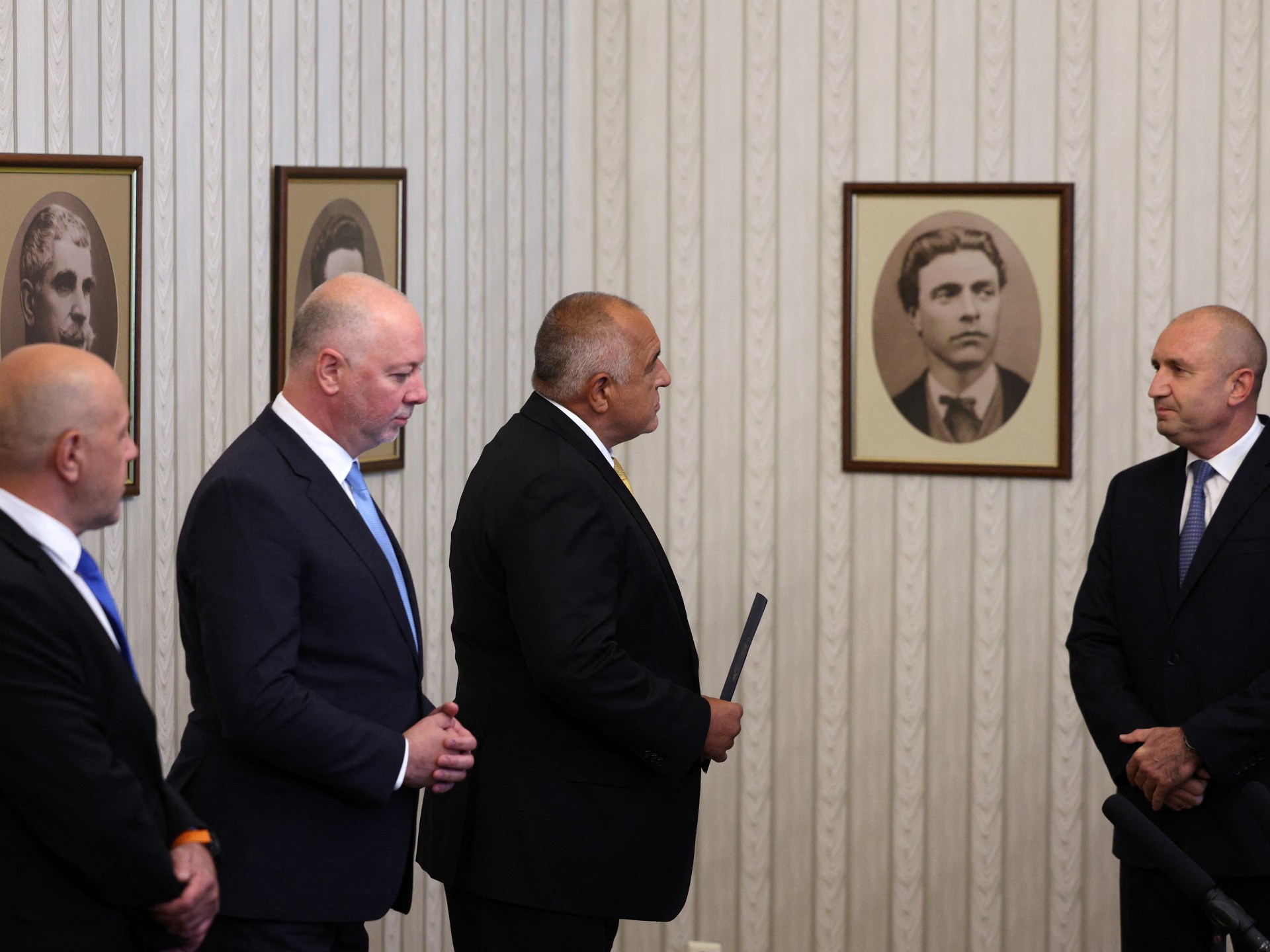
June 8 vote, which handed centre-right party most seats but not a majority, was sixth snap poll in three years.
Bulgaria’s president has mandated a centre-right coalition to form a government almost a month after elections delivered yet another fragmented parliament.
President Rumen Radev tasked the GERB-UDF coalition with forming a government after the June 8 vote made it the largest group in the National Assembly. However, the prospects that the move will put an end to Bulgaria’s long run of political instability look slim.
Prime Minister-designate Rosen Zhelyazkov, a former parliament speaker, accepted the mandate from the president. He then presented a list of proposed cabinet ministers for a minority government, which he asked the president to send to parliament for approval.
The 56-year-old lawyer described his cabinet as “a team of experts and seasoned politicians from GERB”. However, the parliamentary vote, set for later this week, is expected to be challenging.
The GERB-led coalition holds just 68 of the 240 seats in the National Assembly and has yet to succeed in garnering the support from other political parties that it would require to command a majority in the vote.
So far, only the ethnic Turkish Movement for Rights and Freedoms with 47 lawmakers has promised support, which leaves the GERB-UDF coalition requiring another ally.
However, that appears unlikely, suggesting that Bulgaria remains some distance from securing a stable government.
Instability
The June 8 election was the sixth snap poll in three years in the poorest member of the European Union.
Multiple governments have come and gone since anticorruption protests starting in 2020 helped topple a coalition led by GERB, headed by then-Prime Minister Boyko Borissov, who remains party leader.
June’s election was triggered by the collapse in March of a coalition comprising GERB and the relatively new, reformist We Continue the Change (PP) party.
Both strongly pro-EU but divided by personal rivalries and distrust, the pair said they could not form a new government without another election.
The PP won 39 seats in the June poll, behind the Movement for Rights and Freedom. The ultranationalist Revival party won 38 seats.
Borissov, who led three governments between 2009 and 2021, said immediately after the election that he would not seek the prime minister’s chair, in an apparent effort to smooth the way to forming partnerships.
But PP announced on Thursday that it would not support a government that includes GERB.
If the coalition fails to secure backing from parliament, the president will hand the mandate to the runner-up in the elections.
Bulgaria, which has for years strived to join the eurozone and fully participate in Europe’s open-border Schengen area, is eyeing a stable government that would accelerate the flow of EU funds.
Plans to join the eurozone have already been pushed back twice because of missed inflation targets.
EMEA Tribune is not involved in this news article, it is taken from our partners and or from the News Agencies. Copyright and Credit go to the News Agencies, email news@emeatribune.com Follow our WhatsApp verified Channel





